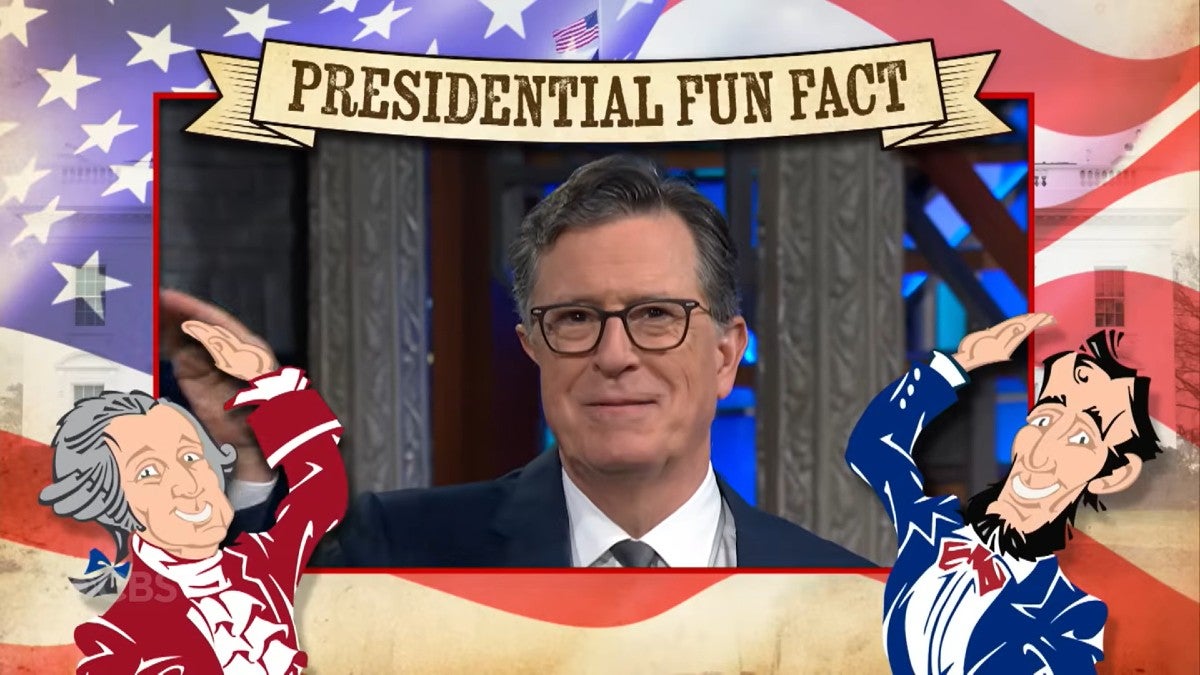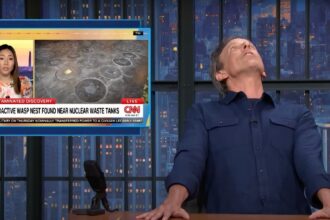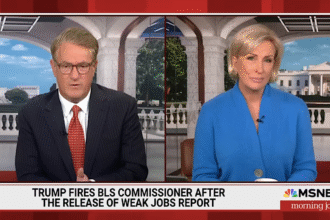Stephen Colbert Jokes That the Smithsonian Claims “the Vietnam War Was Started by Jimmy Kimmel”
In the ever-evolving landscape of late-night television, Stephen Colbert stands out not only for his sharp wit but also for his fearless approach to political satire. Recently, he delivered a particularly striking joke that encapsulates the absurdity of misinformation and revisionist history, particularly during the tumultuous Trump era. Colbert quipped that, according to the Smithsonian, “the Vietnam War was started by Jimmy Kimmel.” This amusing yet pointed statement offers a lens through which we can examine not only the blurring lines between comedy and serious commentary but also the ramifications of misinformation in contemporary society.
The Context of Colbert’s Comment
Colbert’s humor often shines a light on the political landscape, particularly events and statements that speak to broader societal issues. By joking that the Smithsonian—a reputable institution known for preserving history—would make such a ludicrous claim, Colbert underscores a growing concern among many: the erosion of factual information in the public discourse. The Trump era was marked by an avalanche of false claims and alternative facts, eroding trust in conventional institutions and reshaping how history is viewed and interpreted.
Colbert’s comment, absurd though it may seem, is emblematic of the bizarre twists in political narratives that have arisen in recent years. It is important to appreciate the backdrop against which this joke is made—a world where unrealistic comparisons and untrue statements often find their way into mainstream discussions, challenging our understanding of truth and authority.
The Vietnam War and Its Historical Significance
For those unfamiliar with the brushstrokes of history, the Vietnam War was a complex conflict that spanned from 1955 to 1975 and involved significant military engagement from the United States. The war was rooted in a myriad of political, social, and cultural factors, including the Cold War dynamics and differing ideologies between communism and democracy.
Understanding the complexities of war—especially one as contentious as the Vietnam War—requires a nuanced perspective. It cannot be distilled into a soundbyte or a punchline. By joking that a late-night host could be held responsible for such a monumental event, Colbert mocks the oversimplification and distortion of history that can often gain traction in societal discourse.
Late Night TV as a Source of Cultural Commentary
The rise of late-night television figures as cultural commentators is a phenomenon that speaks to our times. In an age defined by rapid information dissemination, such shows become platforms through which political ideologies and social issues are debated and deconstructed. Comedians like Colbert, John Oliver, and Trevor Noah have taken on the role of not just entertainers but also as critical thinkers who dissect the absurdities of our world.
Colbert’s joke serves a dual purpose. It ignites laughter, which is a staple of late-night television, while simultaneously pushing us to question the narratives we accept. By referencing a respected institution, he cleverly highlights the absurdity of a drawn-out misrepresentation of truth—showing that when history is manipulated, anyone, even a comedian, can be painted as responsible for significant events.
The Role of Misinformation in Contemporary Society
One of the most significant issues emerging from recent political climates is the rampant spread of misinformation. In the era of social media, falsehoods can go viral in an instant, often overshadowing well-researched facts. The notion that a comedic personality could be blamed for a historical event is a hyperbolic representation of how misinformation can distort reality.
The cultural commentary surrounding this issue is critical, especially as younger generations navigate their understanding of history largely through digital platforms. It raises essential questions: How do we discern fact from fiction? What responsibility do we have in seeking out accurate information? And perhaps most importantly, how do we ensure that historical narratives remain intact amidst a sea of distortions?
The Repercussions of Revisionist History
Colbert’s quip evokes the dangers of revisionist history—where the actual events of the past are manipulated or reinterpreted to fit contemporary narratives. Revisionist history can create confusion, breed distrust, and influence public opinion in ways that may not reflect the truth. When figures in authority, or even figures of entertainment, are allowed to shape narratives without accountability, a slippery slope emerges where fiction can tragically replace fact.
In a society where people are increasingly threatened by the decay of trust in factual institutions, the importance of responsible storytelling, whether in news or entertainment, cannot be overstated. Late-night comedians have an opportunity to bridge the gap, drawing attention to critical issues while encouraging their audiences to seek deeper truths.
Conclusion: Lifting the Veil of Absurdity
Stephen Colbert’s joke about the Smithsonian claiming that “the Vietnam War was started by Jimmy Kimmel” serves as far more than just a punchline. It reflects a broader commentary on our contemporary landscape—one riddled with absurdities, misinformation, and shifting narratives. By using humor as a tool, Colbert not only entertains but also invites his audience to be vigilant consumers of information.
The interplay between comedy and critical thinking continues to hold a mirror to our society, urging us to reevaluate our understanding of history, truth, and authority. As we navigate a world where facts can be easily manipulated and media consumption can sway public perception, let’s remember Colbert’s jest not only for its humor but also for the deeper conversations it ignites. In the quest for factual understanding and responsible storytelling, let us take Colbert’s satire to heart, reminding ourselves that laughter can be a powerful vehicle for genuine reflection and change.





